Affiliate links on Android Authority may earn us a commission. Learn more.
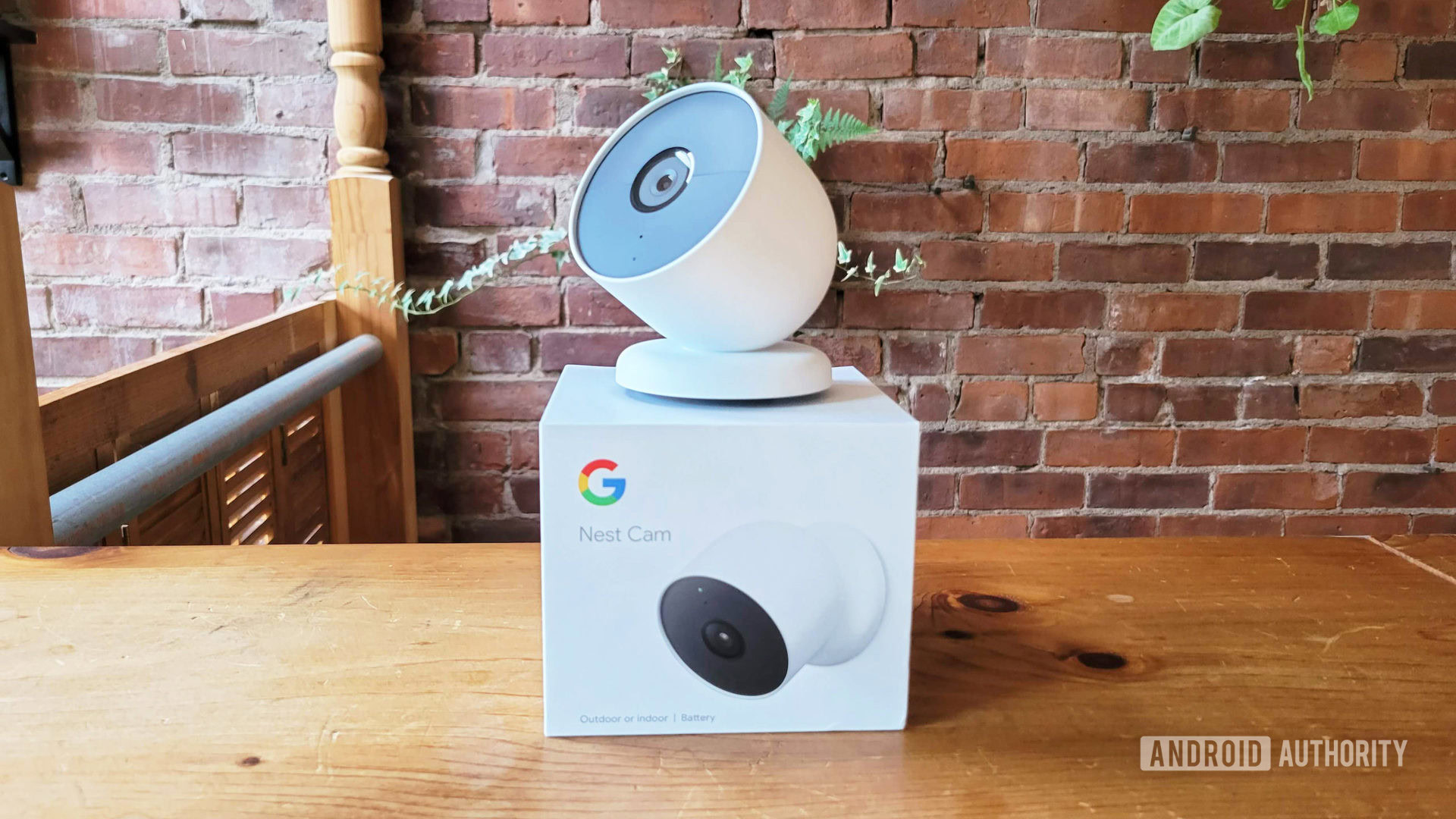
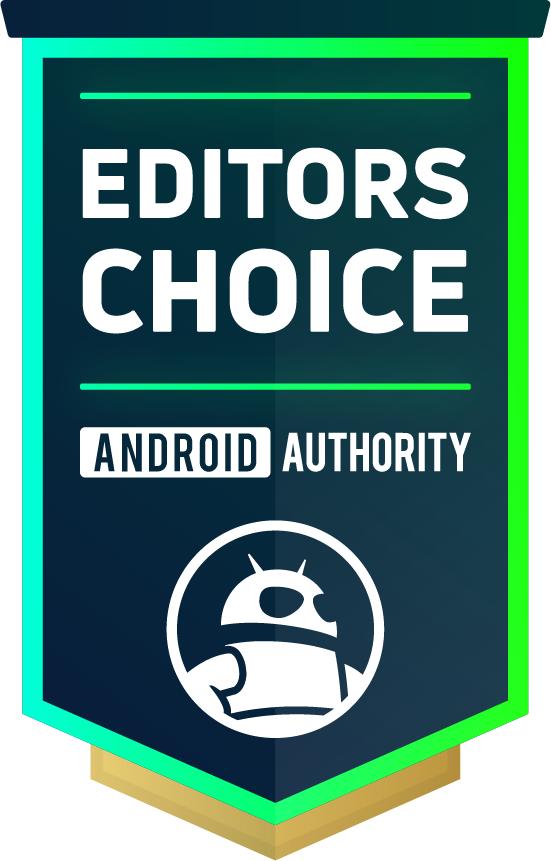
Google Nest Cam review: Finally, a wireless camera from Nest
Published onMarch 14, 2023

Google Nest Cam
MSRP:
What we like
What we don't like

Google Nest Cam
The original Nest Cam from 2014 wasn’t the first Nest product, but it certainly became one of the company’s most popular releases. Since then, we’ve seen multiple riffs and variations on that device, which helped to bring accessible smart security cameras to the masses.
Over the years, though, Nest stopped being the go-to brand for smart cameras. High prices and the lack of wireless solutions — for both indoor and outdoor cameras — pushed the company to the sidelines. Now, companies like Blink, Arlo, Ring, Eufy, and others dominate the market. Google is hoping to turn that tide with its new offering, the Google Nest Cam — headlined by the Google Nest Cam (battery) model. Finally, the company has a fully wireless indoor/outdoor security camera on its roster.
Was it worth the wait? Dive into our Google Nest Cam review to find out.
Update, September 2022: We’ve updated this review by adding in an FAQ section that answers the most asked questions about the Google Nest Cam and much more.
Update, March 2023: We’ve added notes about it now working with Amazon Alexa.
What you need to know about the Google Nest Cam
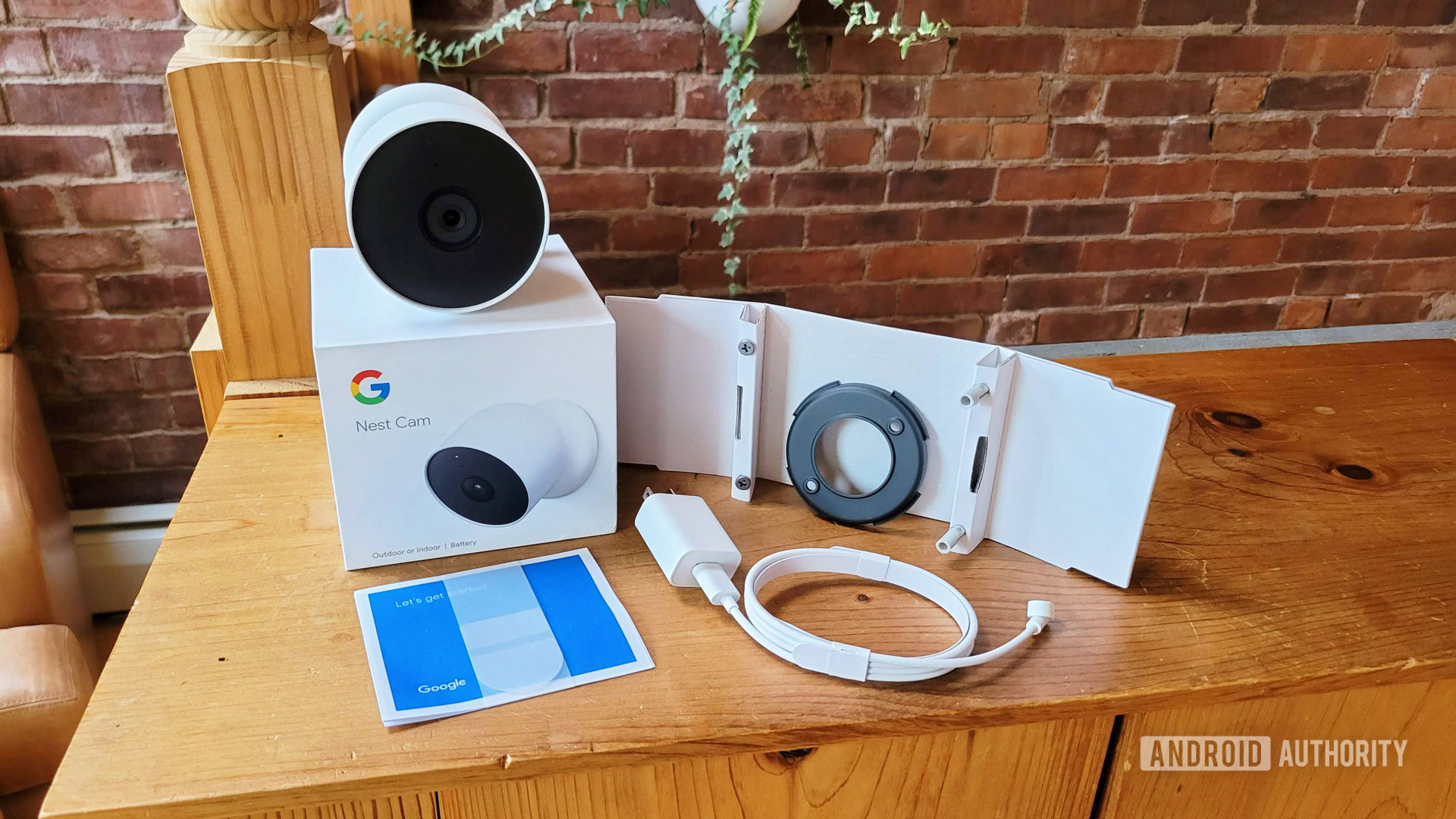
- Google Nest Cam (battery): $179 / £179 / €199
- Google Nest Cam (wired): $99 / £89 / €99
- Google Nest Cam with Floodlight: $279 / £269 / €299
The 2021 iteration of the Google Nest Cam is very different from any of its predecessors. First, and most importantly, it can be used in both a wired and completely wireless state. This makes it, unbelievably, the very first wireless security camera bearing the Nest name. Second, it can be used both indoors and outdoors, since it has an IP54 rating.
Visually, the device looks a lot like the now-discontinued Nest Cam Outdoor. However, it is significantly larger than that older model to accommodate the non-removable battery pack inside. The whole device is about the size of a coffee mug — it even looks a bit like one when stood upright.
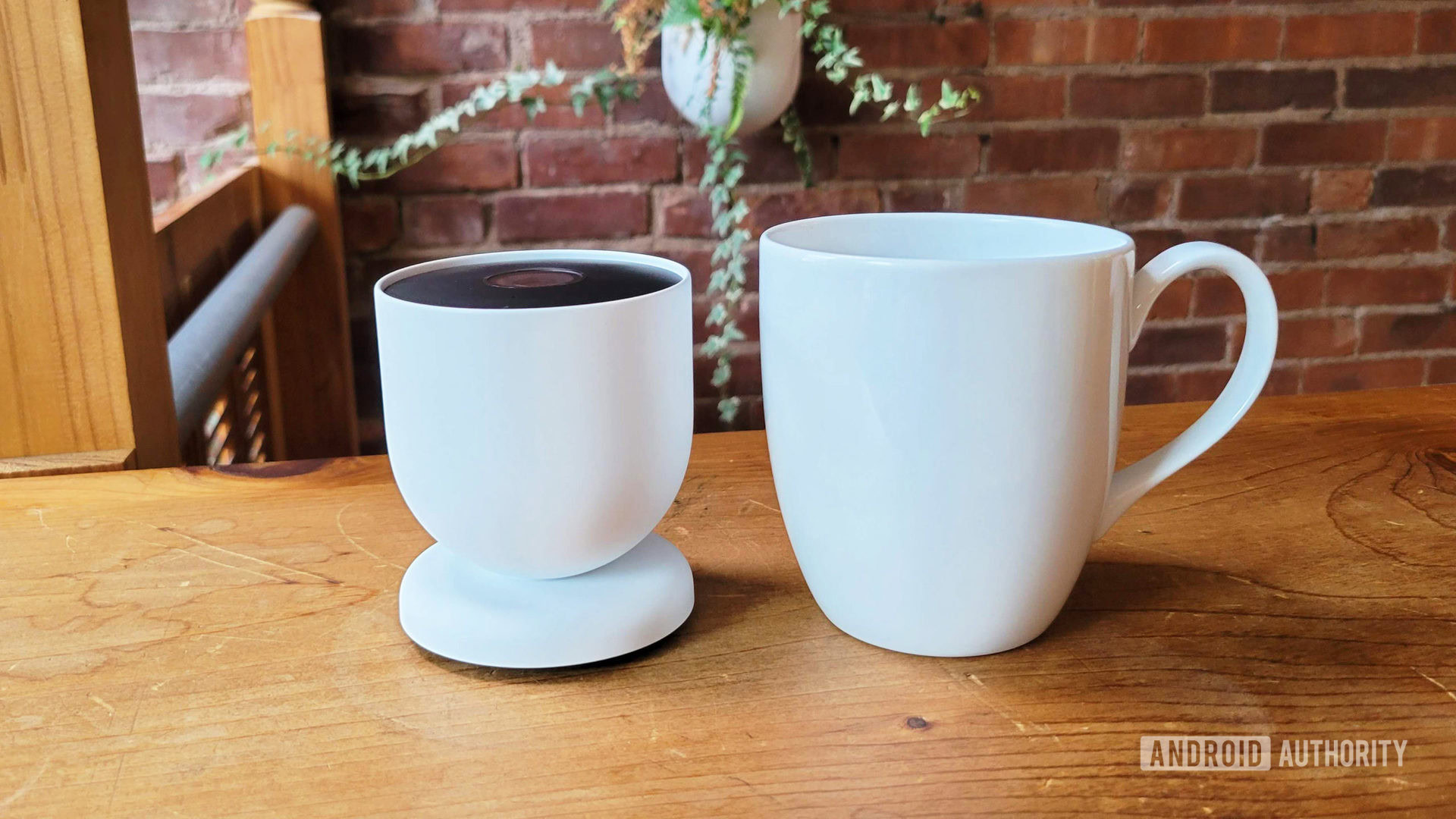
Outside of its wireless capabilities, it delivers all the features you’d expect from a Nest security camera. It alerts you when it spots something, records footage automatically, saves that footage in the cloud, and integrates easily with Google Assistant (it’s now natively compatible with Amazon Alexa too, but not Apple HomeKit). However, unlike past models, it has on-device machine learning capabilities, which allows a lot of its AI smarts to happen quickly and securely without needing to ping Google’s servers.
See also: The best Google Nest products you can get right now
There’s also a small but powerful speaker built into the camera, allowing you to both hear what’s going on as well as project your voice to the camera’s surroundings. This is very similar to the previously mentioned Nest Outdoor Cam.
Around the world, the Google Nest Cam comes in one color called Snow. While the Google Store only sells the Nest Cam individually, for those that want multiple cameras you can buy a twin pack ($329) at a discount from retailers like Best Buy.
Do note that aside from the battery-powered version we tested, there is a different model of this new Nest Cam ($99) that comes in multiple colors, officially called the Google Nest Cam (wired). That product cannot be used wirelessly and is indoor-only. For the sake of simplicity, we will refer to the wireless version of the camera as the Google Nest Cam. Keep in mind that Google also released a Nest Cam with Floodlight ($279) for greater visibility at night.
What can the Google Nest Cam do?
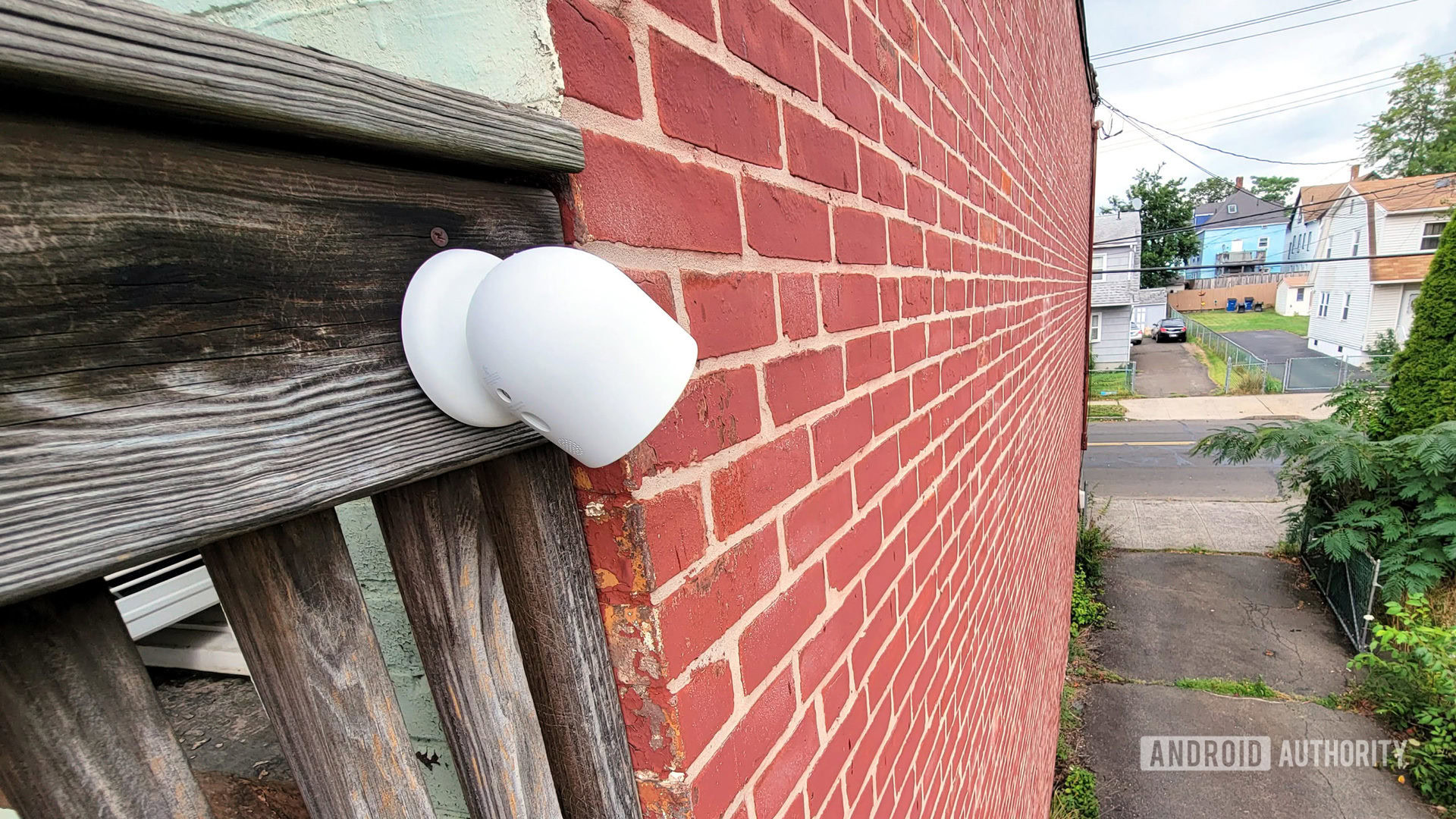
As mentioned before, you can use the new Nest Cam indoors and outdoors, wired or wireless. The retail box includes a mounting bracket, screws, and screw anchors, which should help you mount the camera pretty much anywhere.
Once mounted (see the next section) and connected to Wi-Fi, you can view the camera’s feed anytime you like in the Google Home app for Android or iOS. The camera will also send you notifications to your phone if it spots a person, animal, vehicle, or just general motion. If you have an Assistant- or Alexa-powered smart display, you can ask it to show you the camera’s feed.
Video
The Nest Cam has a 2MP 1/2.8-inch camera. It broadcasts in a 16:9 aspect ratio with a 130-degree field of view (FoV) at a resolution of 1,920 x 1,080. It supports HDR for crisper shadows/highlights and also has a night vision feature.
As far as security cameras go, the video quality of the Google Nest Cam is fine. It’s not setting any gold standards for the industry, but it gets the job done. Obviously, there are plenty of cameras out there that support 4K — including older Nest cameras — but 1080p is good enough for what most people will need. Besides, a 1080p resolution helps keep battery life in check.
The camera is capable of 6x digital zoom. As one would expect, the more you zoom in, the more the picture quality degrades. I would avoid placing the camera in a spot where you’d need to rely on zoom to capture footage, but if you need the feature, it is there.
HDR support definitely helps night vision. Sometimes, night vision on cameras can wash everything out, making it difficult to see details, but that’s not a huge problem here. It’s unfortunate that Google didn’t offer a color night vision mode, especially when you consider competitors offer it in this price bracket. It’s also strange when you think about how well Night Sight works on Google’s Pixel phones and how well it might have worked for this camera.
Audio
The tiny speaker on the bottom of the camera actually gets surprisingly loud. You can make it as loud or quiet as you need in the camera’s settings. It also has a microphone to grab sound from surroundings. In tandem, these features allow you to use the camera as a communications device. It would be awkward, but you could use it to chat with a passing neighbor, shoo someone off your lawn, or instruct a delivery person where to leave a package.
It’s dead simple to use the talk feature. Whenever you’re viewing the live feed, a big blue microphone button appears. Tapping that broadcasts your voice. Another tap stops the broadcast. You can do this from your phone but, for some reason, you can’t do it from a smart display.
AI-based alerts
Previous Nest cameras had smart alerts in which the camera would recognize certain things and send you a notification in response. However, those alerts were all processed over the internet on Google’s servers, making them slow and sometimes inaccurate. The Google Nest Cam (and the new Nest Doorbell) use an on-device chip to conduct this function, making smart alerts not just faster and more accurate, but also more private and secure since the processing doesn’t ping Google’s servers at all.
Related: How on-device machine learning has changed the way we use our phones
The camera can recognize people, animals, vehicles, and general motion. If you pay for Nest Aware, it can even recognize specific people (“Tom is in the driveway,” for example). It can also recognize audio-based events, such as a smoke alarm going off. You can customize your notifications for all of these events in the Google Home app.
Unfortunately, this camera won’t recognize packages, which is something the Nest Doorbell does. I’m not sure why Google left this feature out.
During my time with the camera, it was pretty flawless at notifying me when something happened and accurately determining what happened. It’s a huge improvement over my older Nest Cam Outdoor which constantly misidentifies things. If you’re a Nest camera user already, trust me when I say that this is a big step up from what you’re used to.
IP rating and internet/power outages
The Google Nest Cam has an IP54 rating. This means it can handle liquid splashes (i.e. rain) and won’t get destroyed in something like a dust storm. It cannot handle complete immersion in water, though.
The camera has a decent IP rating and will work even if the internet goes out.
I had the camera outside for the entirety of tropical storm Henri, which hit my location recently. The camera operated just fine throughout the storm and held fast to its base.
If the internet goes out, the Nest Cam will record up to an hour of footage to its on-device storage. Once connectivity comes back, it will upload that footage to the cloud and continue operations as normal. If the device is wired and the power goes out, it will fall back to the battery until power is restored.
Can you install the Google Nest Cam yourself?
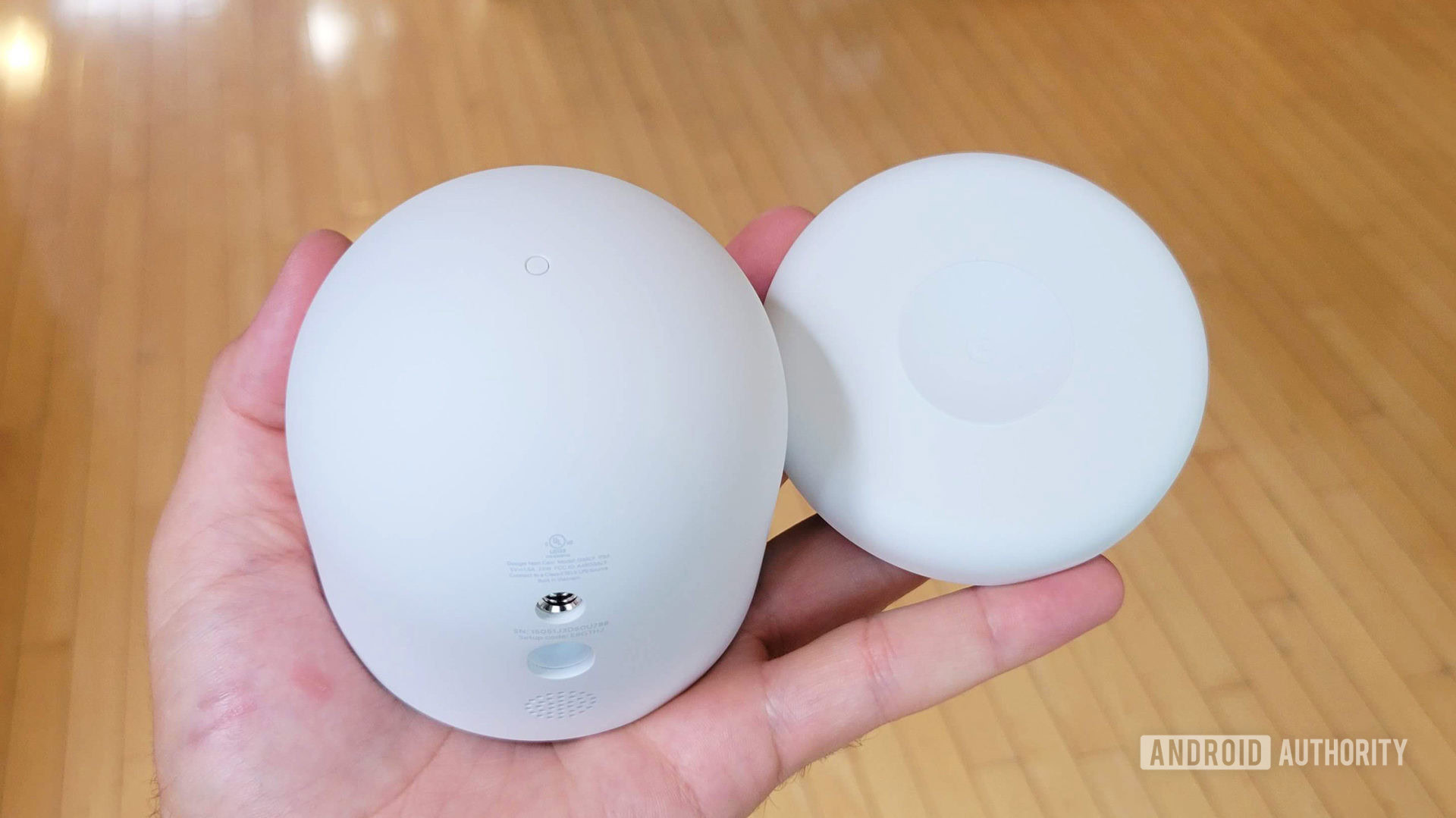
It was incredibly easy to install the Google Nest Cam onto my deck. Inside the box is a plastic bracket with two screw holes. You simply screw that bracket to your preferred location and then mount and lock the included camera base. It took less than 10 minutes for me to get everything set up. Check out Google’s installation video to get an idea of how easy it is.
The bottom of the camera itself includes an incredibly strong magnet that snaps right to the base. Once connected, you can adjust the angle of the camera easily simply by rotating it around the base.
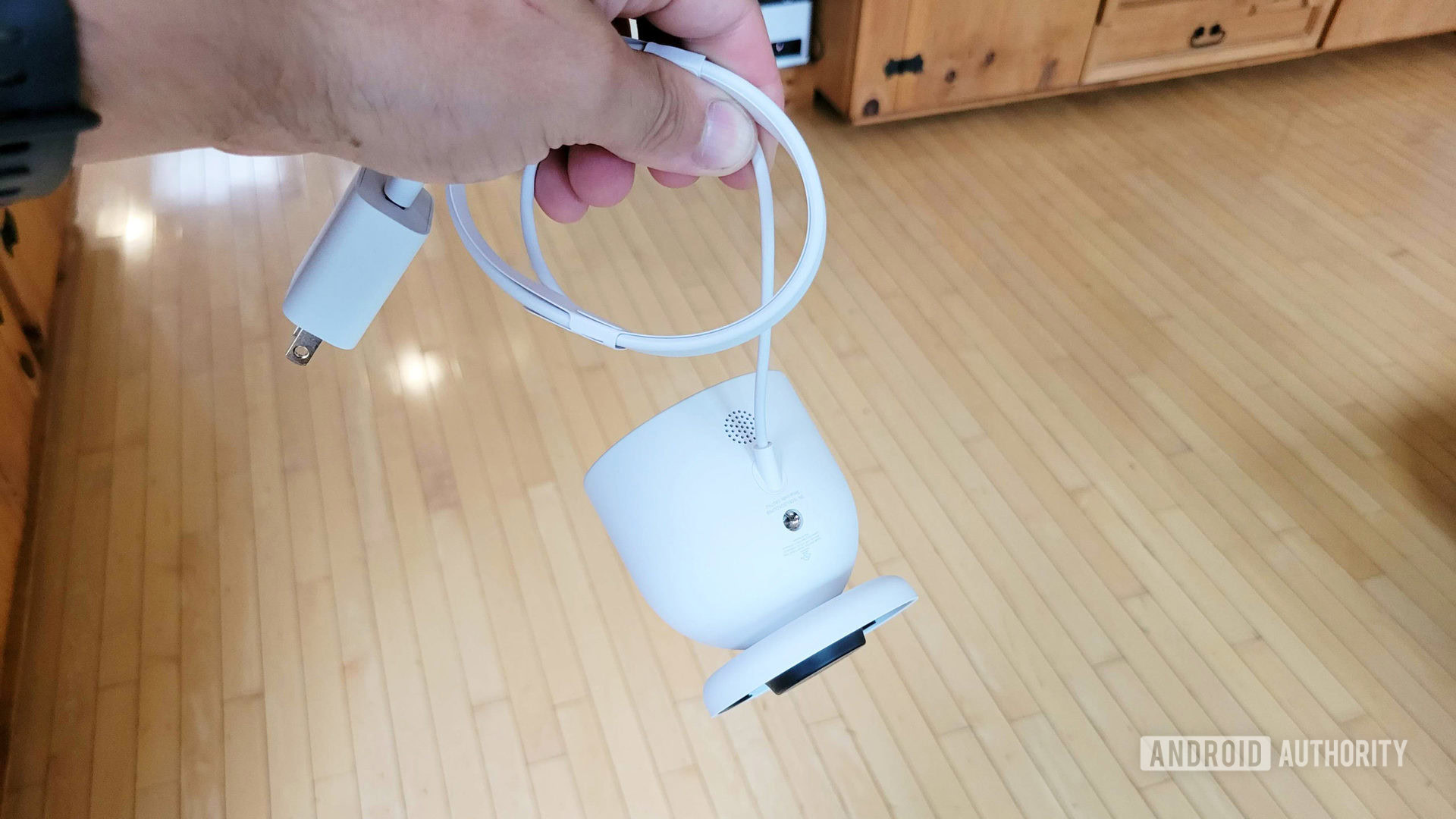
The included charging cable snaps into a proprietary groove on the back of the camera. However, the 1m-long cable that comes in the box is not weatherproof. You’ll need to buy a separate weatherproof cable from Google in either a 5m length ($34.99) or 10m ($39.99). In other words, out-of-the-box, this is exclusively a wireless camera for indoor use.
The bundled cable works fine for indoor use, though. The magnetic base works well enough for simply propping the camera on a flat service, but you can mount it indoors the same way you would outdoors. You can also buy an indoor-only Nest Cam Stand ($29.99) that makes things a bit easier for tabletops and other surfaces if you don’t want to mount it to the wall.
As a final note, if you are installing this wirelessly outside, be sure to put it out of reach of anyone who might want to steal it. Since it’s only connected to the base magnetically, a thief could simply grab it and walk off with it. Google does offer a theft protection plan, but it may reject your claim if you installed it somewhere easy to access. Conversely, you can also buy a theft-resistant outdoor mount from Google.
How is the Nest Cam’s battery life?
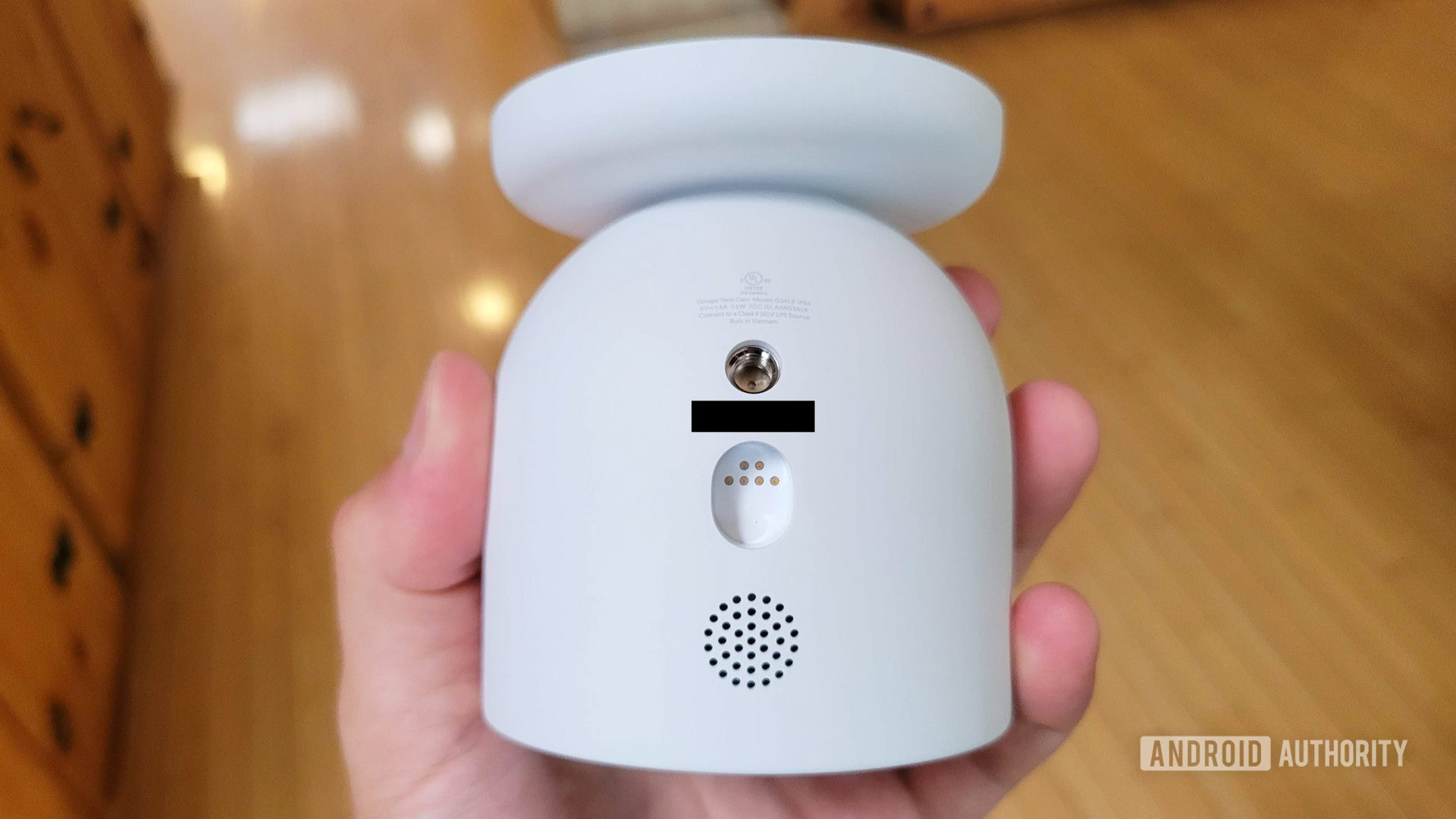
I installed the fully-charged Nest Cam in the afternoon on a Thursday. By the following Thursday afternoon, its battery level had dropped to 97%. Judging from that, the Google Home app estimates I could go about eight months before I would need to charge the Nest Cam. That’s not bad at all.
Keep in mind, though, that your battery life will greatly depend on how active the area is in which you install the camera. If it’s constantly seeing events, pushing notifications, and streaming footage to the cloud, battery life will drop way faster than 3% each week. It just so happens that my driveway isn’t super active, so the camera didn’t need to do much work. Meanwhile, the Nest Doorbell (which has the same battery capacity as this camera) I also tested was pointed right at a busy city street, and its battery life was much, much shorter. See our full review for more on that.
If you find that the camera isn’t lasting as long as you’d like, there are some settings you can tweak to help. You can reduce the quality of the video feed, reduce notifications, and lower the event sensitivity to make the camera less active, for example.
Regardless of how long it lasts you on a charge, the 6,000mAh battery inside takes about 5 hours to top up. It has a max charging speed of 7.5W, so be sure to use the in-box charger that meets that speed so you can charge as quickly as possible. Since you can’t charge the camera outdoors with the in-box cable, you’ll need to bring it inside.
Is it worth getting Nest Aware with the Google Nest Cam?
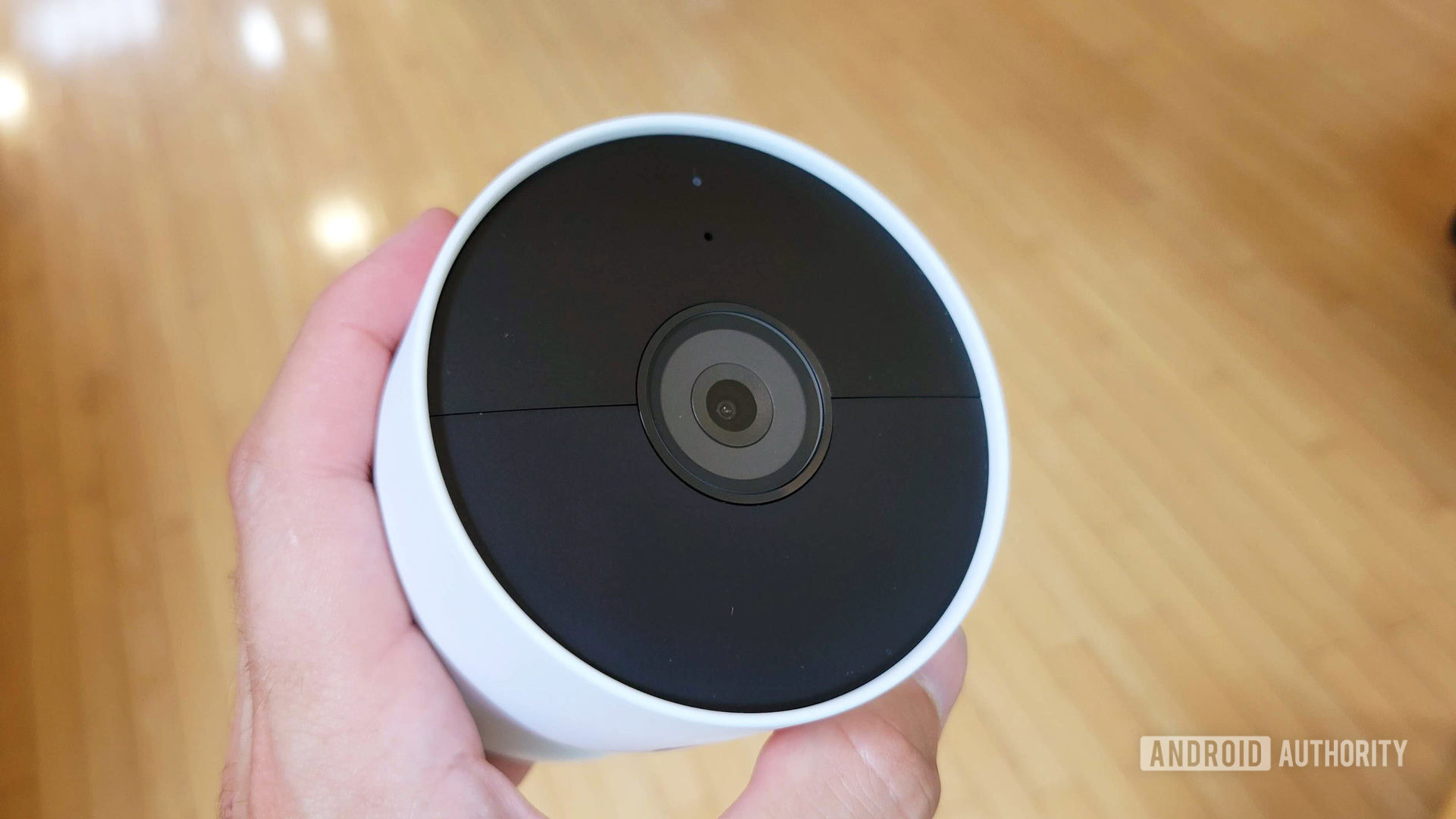
Google offers 3 free hours of cloud storage with the Nest Cam. There’s been some confusion over what this means, but Google confirmed with us that it means 3 real-time hours. In other words, anything it recorded more than 3 hours ago gets auto-deleted.
While this is better than some cameras that don’t offer any free recording, for a 24/7 outdoor security camera, this is essentially a useless offer. Take this example: an intruder enters your yard at 3AM. You receive a phone notification, but you’re asleep. When you wake up at 7AM, your notification is still there, but since it’s been more than three hours, the actual footage is gone. In that situation, you would have no way to retrieve footage for your records.
You get a few hours of cloud storage for free, but it's likely most buyers will need Nest Aware.
Paying for one of the two levels of Nest Aware solves this problem. The basic Nest Aware package ($6 each month or $60 each year) gets you up to 30 days of event recording. Nest Aware Plus ($12 each month or $120 each year) doubles that to 60 days and also offers 10-day continuous recording for compatible devices, the Nest Cam included, but only when it’s wired up.
Either Aware package also includes Familiar Face Detection. FFD uses your Google Photos and Google Contacts information to help determine who the camera is seeing. This enables the camera to not only tell you that a person is in your yard, but who that person is. It’s really cool, but hardly essential.
Basically, if your intention is to use this as an outdoor security camera, you’re going to need Nest Aware. Otherwise, you’ll need to check your notifications every 3 hours to make sure you save any important footage before it’s gone forever. Be sure to take this into consideration when budgeting.
Anything else?
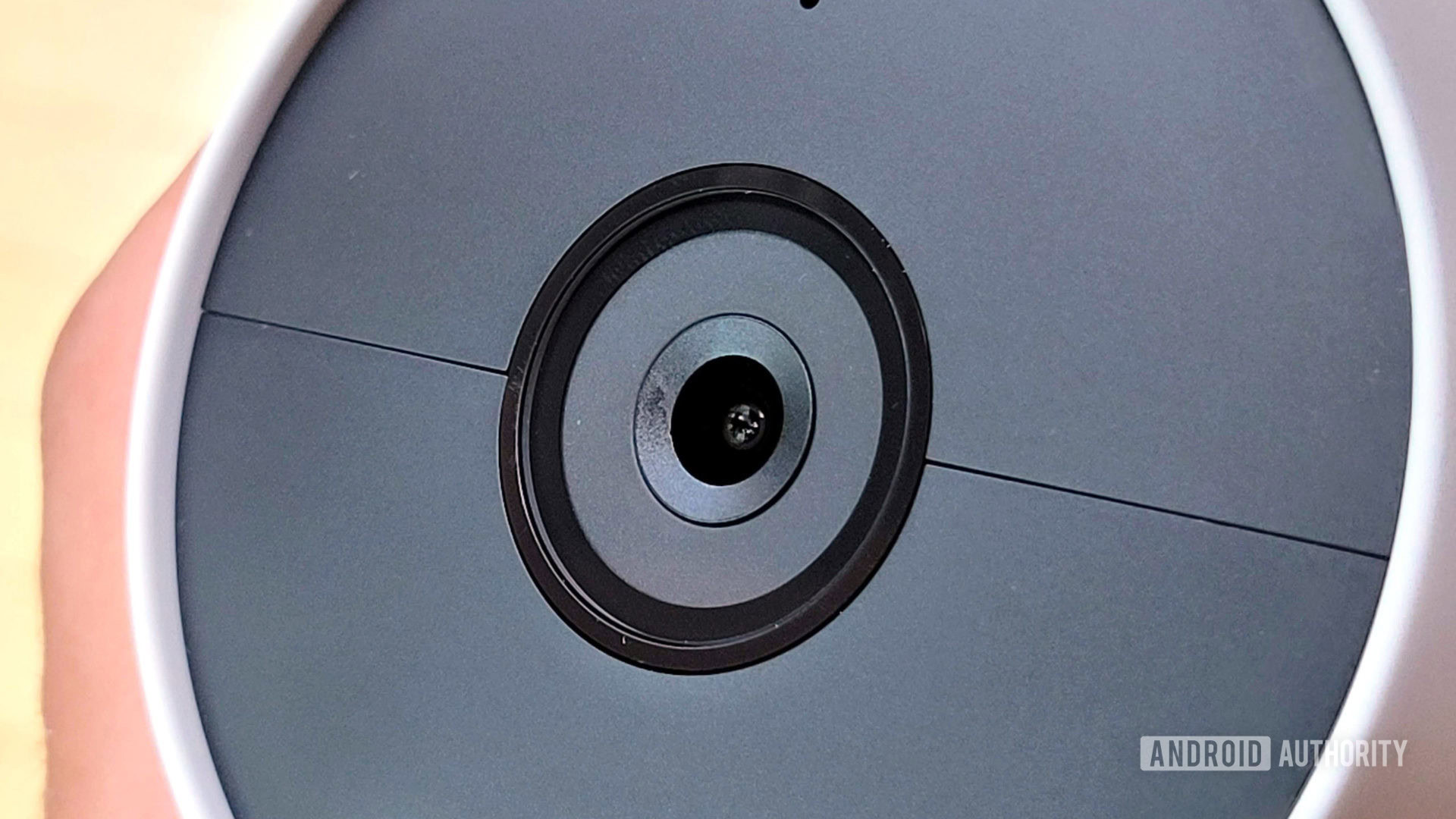
- No Nest app: Google is moving away from the Nest app. All features of the Google Nest Cam, including setup, are exclusively accessible through the Google Home app.
- Wi-Fi only: Although you can deliver wired power to the Nest Cam, you cannot deliver wired internet. As such, you’ll need a decent Wi-Fi signal (2.4GHz or 5GHz) wherever you mount it for it to work properly.
- Video feeds are not constant: If you install this wirelessly, it’s important to note that it will not have a constant video feed. In other words, if you are hoping to have your camera streaming to a smart display 24/7, this may not work for you. If there are no events happening and you haven’t manually activated the camera, the feed will be off. Even when you first open the Google Home app, you’ll see a blank screen for the camera until you manually turn it on or an event occurs. If you install this wired, though, it will offer a 24/7 constant feed.
- Needs to be mounted: If you remove the camera from its magnetic base, it will shut off. We’re not sure why you would, but you cannot hold the camera in your hand and move around the house while recording footage.
- Privacy and video history: It is incredibly easy to get rid of any video history the camera records. In the Google Home app, there’s an easy-to-find red button that says “Delete video history.” A tap of that and then a confirmation deletes everything you have saved. Remember, too, that AI detection happens on-device, making this a relatively secure and private camera.
Value and competition


There is a lot to love about the Google Nest Cam. However, at $179 it won’t be for everyone. The fact that most buyers will need a Nest Aware subscription, too, doesn’t do it any favors. There are several brands that offer cheaper models that do a lot of the same things the Nest Cam does.
The wireless Blink Outdoor ($99) can frequently be found for much less than its usual $99 price tag. It has a lower resolution, runs on AA batteries, and you need to pay for all cloud storage. However, it’s cheap, simple to set up, works with Amazon Alexa, and provides two-way audio. You can even get a pack with two of these cameras for the same price as you’d pay for one Google Nest Cam.
The Eufy SoloCam E20 ($99) is another wireless camera that has a 1080p resolution, does not require any subscription fees, is easy to install, and has an IP65 rating. Unfortunately, it does not offer any kind of cloud uploads with all recordings stored on-device. This might be better for some consumers, though.
If price isn’t a barrier for you, there are some cameras that offer some advanced features when compared to the Google Nest Cam. The Arlo Pro 4 ($199) offers a 2K resolution, color night vision, and the same wireless/outdoor capabilities as the Nest Cam. However, you’ll need to pay a subscription fee for any cloud storage as well as all smart alerts, which Google offers free.
When you start to get as fully featured as the Nest Cam, you actually find it undercuts some of the competition, too. The Ring Spotlight Cam ($199) is wireless, easy to install, offers a 1080p resolution, and has nifty removable rechargeable batteries. Unfortunately, all cloud uploads are locked behind a subscription paywall and it doesn’t have the AI-based smart alerts of the Nest Cam. It is also more expensive.
The bottom line here is that the Nest Cam is expensive and you can easily get cheaper wireless cameras from other brands. However, you’ll just be sacrificing a lot of features by doing so. The Nest Cam is expensive, yes, but priced appropriately considering the competition.
Google Nest Cam review: The verdict
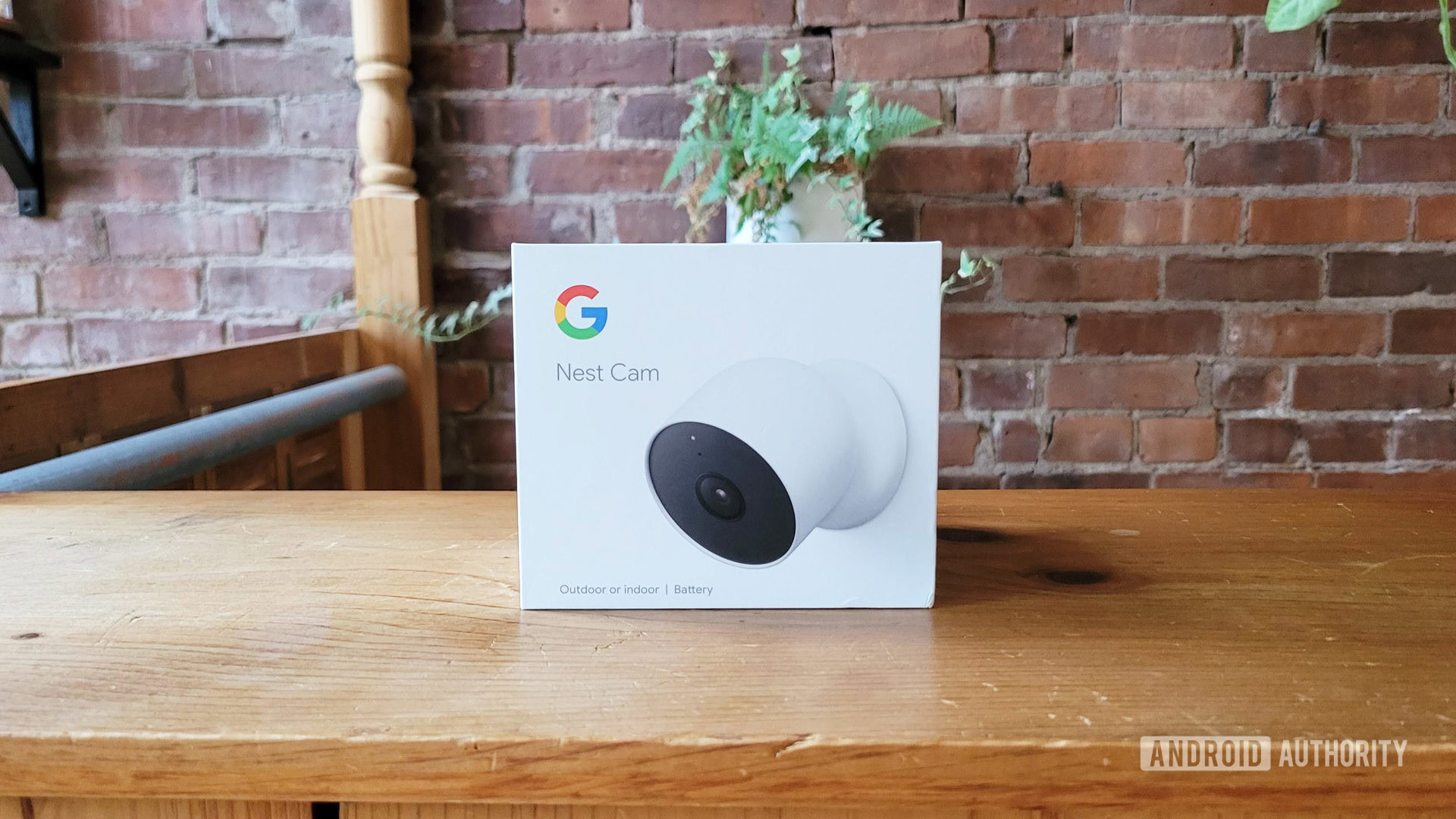
During this Google Nest Cam review, I only noticed a handful of hardware and design flaws. It’s easy to steal without the purchase of an additional mount, only works wirelessly outdoors out-of-the-box, and charges slowly. Outside of those issues, though, there’s a lot to love about this security camera.
Its AI-based alert system is secure, accurate, and doesn’t require a monthly subscription. Three hours of free cloud storage isn’t great, but most competitors make you pay for any cloud storage if they even offer it at all. Battery life is really good, installation is as easy as pie, and it can handle a tropical storm without breaking a sweat. It’s almost perfect.
If you can afford it, this is one of our favorite wireless security cameras.
The fact that you can use it wired or wirelessly, indoors and out, makes this an exceptionally versatile camera, too. The chances are very high that no matter what you need from a security camera, the Google Nest Cam can provide it.
The only big barrier is the price. $179 is a lot of money to spend on one camera, especially when you factor in that most people want multiple cameras around their homes and will also need a Nest Aware subscription. This is a situation in which you get what you pay for, though, and what you’ll get you’re likely going to love.
Google Nest Cam top questions and answers
There’s no monthly fee for using a Google Nest Cam, although signing up for Nest Aware (starting at $6 per month) does get you at least 30 days of event recording instead of just the 3 hours everyone gets for free. The subscription also gets you access to features like Familiar Face Detection, which recognizes people and tells you who’s on your property.
You only get 3 hours of video storage for free with your Google Nest Cam, which isn’t all that much. To get more, you’ll have to get a Nest Aware subscription.
Google doesn’t specify this information, as it depends on how high/low you mount the camera and weather conditions. However, in our experience, it can see far enough to cover most people’s backyards.
You can have up to 10 Google Nest Cams per home in the Google Home app — more info here.
Just like any other security camera, the Google Nest Cam can be hacked. You can take precautions of course, such as creating Google and Wi-Fi logins that are hard to guess or brute-force.
Yes, the Google Nest Cam has a microphone and can record sound.
Yes, the Google Nest Cam has to be connected to the internet, otherwise it can’t upload video to the cloud. You also can’t see the video stream without an internet connection.